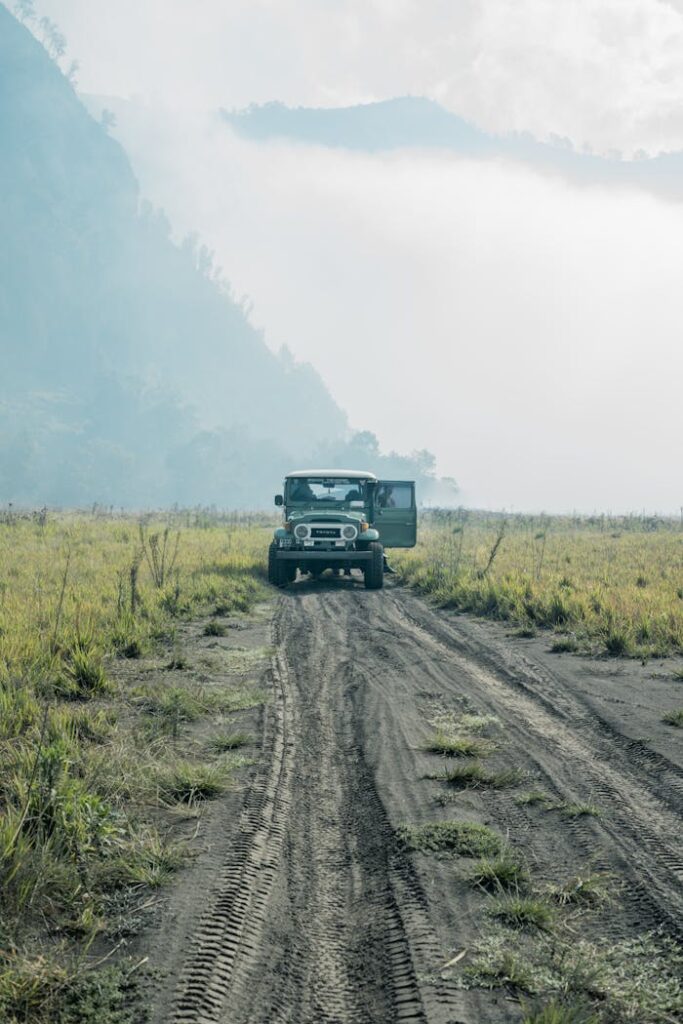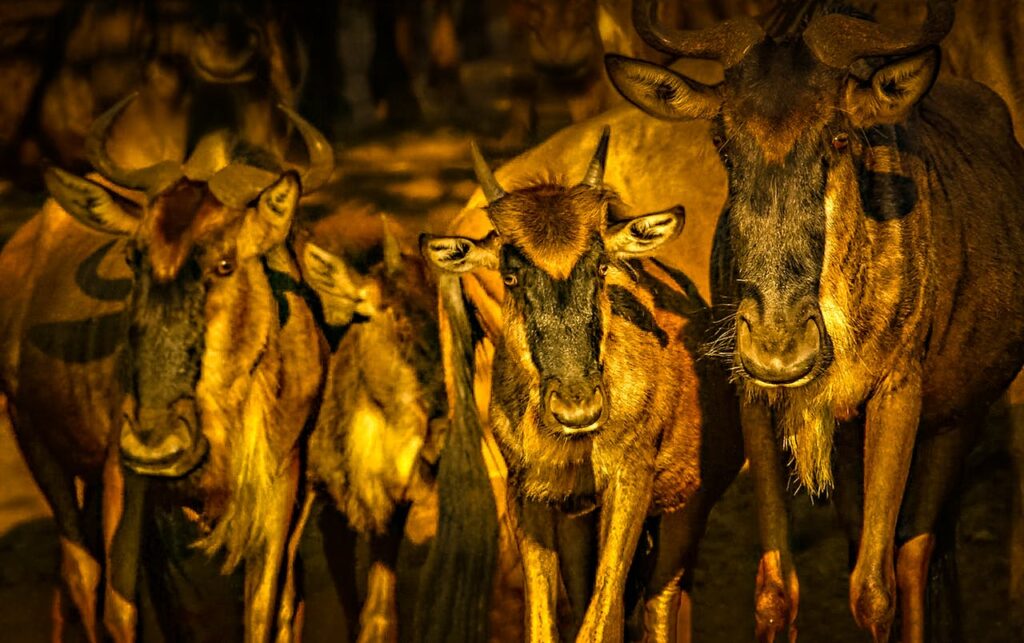It was August 13th, right in the heart of the Great Migration season, when the Masai Mara transforms into a breathtaking spectacle. Reports of wildebeest crossings poured in from all directions—near the new Mara Bridge and Double Crossing. Our network of driver-guides posted awe-inspiring footage of the migration, capturing the magic of the Mara. I had just returned from Nairobi to our Kambu Mara Camp, excited by the energy of the season. Everything seemed perfect, or so I thought.
We had a family staying at our camp who had paid for a 2-day game drive during this remarkable time. Each day promised an 8-hour adventure into the heart of the Mara. Knowing how difficult it can be to secure quality vehicles during peak season, we had taken every precaution. We drew up contracts for two vehicles—a robust open-sided Land Cruiser and a closed-body Land Cruiser—for our guests. For this particular family, we had secured a 2015 KCP Land Cruiser 79 series, a vehicle we knew would offer a smooth, reliable safari experience.
But that morning, everything went wrong.
Instead of the safari-ready Land Cruiser we had arranged, a clunky, beat-up 1980s Series 70s with a KAW registration rattled into camp. From the moment I saw it, my heart sank. The vehicle was old, its movements labored, and its exterior told a story of years of wear and tear. I knew this was not the kind of experience our clients had paid for. And I was furious—how could the vehicle owner, someone we had a longstanding relationship with, send this?
It only got worse. The alternator wasn’t charging, leaving the battery to die after a few hours. To my horror, our client ended up pushing the vehicle just to get it moving. What should have been a thrilling day of wildlife and adventure turned into a frustrating ordeal. They barely managed to cover 60 kilometers—far less than the typical 100 kilometers expected for a full-day game drive. The guests were understandably upset.
I immediately called the vehicle owner, demanding an explanation. His response was infuriating. Without any notice, he had rented out the original vehicle we had contracted to another client who offered him Kes. 5000 more. We could have paid the extra 5k if he had mentioned the rising peak season rates. Instead of owning his mistake, he had the audacity to act as though he was doing me a favor by sending this replacement. I was livid. Not only had he broken our agreement, but his indifference to the mess he had created was insulting
Day one was a disaster. I was determined not to let it happen again.
I quickly reached out to another vehicle owner, who sent a photo of a 2012 Land Cruiser 79 with a KCA registration number. It looked perfect—modern, sturdy, and ready for the job. I thought we had solved the issue. But the next morning, my heart sank again.
Belching clouds of black smoke, a dilapidated Series 60 Land Cruiser from the 1970s slowly limped into the waiting bay. Its front windshield was cracked, the back door wouldn’t close, and clouds of dust from the Mara’s dry August roads were pouring into the vehicle. It looked like it could fall apart at any moment. Our guests’ disappointment was visible. To make matters worse, the driver admitted that the vehicle couldn’t even shift beyond third gear.
Once again, the game drive was cut short. They returned to camp at 2 PM, having barely covered 40 kilometers. What should have been a magical experience in one of the world’s most stunning landscapes had been reduced to a frustrating, sluggish crawl. The guests left angry, and I was left feeling like I had failed them.
We refunded the client, but the damage was already done. This wasn’t just about one ruined safari—it was a stark reminder that something was deeply wrong with the way safari vehicles were being sourced. The trust we had placed in vehicle owners had backfired, and our clients had suffered because of it.
In that moment, I knew things had to change. We needed a reliable, transparent, and trustworthy way to source and book safari vehicles. A system that would guarantee that no guest would ever experience this kind of disaster again. The solution was clear: a platform where safari-ready vehicles could be listed, vetted, and booked with confidence.
And so, MasaiMara.ke was born out of that frustration. We partnered with industry experts, driver-guides, and vehicle owners to create strict standards that every vehicle on the platform must meet. No exceptions. We vowed never to let another guest endure what our clients had gone through.
MasaiMara.ke is more than just a listing platform. It’s a commitment—a promise to provide safe, reliable, and comfortable safari vehicles. It’s the solution to a problem we experienced firsthand, and it ensures that future guests will have the unforgettable safari experience they deserve in the magical Masai Mara.
How we handled the August incidence to avoid a repeat;
Rigorous Search for Reliable Safari-Ready Vehicles
- We embarked on a thorough search for a reliable, safari-ready fleet of vehicles and secured a high-level partnership with a reputable operator who owns a nearly new fleet of Land Cruisers.
- A key point in the negotiation was ensuring that we would have access to replacement vehicles from his fleet if our first-choice vehicles were unavailable. He committed to providing immediate notification—at least one day in advance—if there were any changes to the booked vehicle, allowing us to review alternatives or seek other options.
- Early communication is now a cornerstone of this partnership, and we maintain open channels of communication with both the vehicle owner and drivers. We are all aligned on the importance of providing a truly magical Mara experience for our guests, and these efforts give us peace of mind that our vehicles will always be safari-ready and up to our standards.
Verified Vehicle Photos, Registration, and On-Site Presence
- In addition to verifying photos and registration details, we now require all drivers to bring the Land Cruisers to the camp the night before the game drive. This allows us to thoroughly inspect the vehicle in person and ensure it meets our standards.
- If drivers wish to sleep at home, the vehicle must remain parked in our camp overnight to avoid any last-minute surprises. Under no circumstances do we make payments before the vehicle arrives and passes inspection.
- This step guarantees that we have the right vehicle and eliminates the possibility of being forced to accept substandard replacements at the last minute.
Established a Backup Fleet
- We now maintain a list of approved backup vehicles from multiple owners to ensure that if one vehicle becomes unavailable, we can quickly source a high-quality alternative. These backup vehicles are pre-inspected and always on standby.
- This eliminates the need for last-minute substitutions with substandard vehicles, offering peace of mind to both us and our guests.


